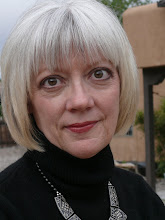Anne Gray, Knowledge Officer at the NHS shared this set of videos recently that I'd like to share here: In her words: the goal was to "encourage people to consider the importance of KM improve
quality of care, outcomes and patient experience." They are worth a look:
Of course I see things that could
be tweaked...but I embrace these as nice tools to introduce the concepts
associated with KM to a wide range of individuals. There are many professions/services
that can contribute to effective knowledge sharing in healthcare--none of which
are explicitly called out--so I don't think librarians, clinicians, informaticians or patients should feel left out
here. We all have knowledge to share, so let's not quibble and get defensive if our roles or professions aren't called out.
I have a challenge for the NHS thou. I am interested in how they are going to use these to
help healthcare understand how to:
1) measure the impact of true KM in the healthcare
environment.
2) support and implement a knowledge sharing culture and
how it concretely contributes to safe care
3) truly articulate the costs involved in changing
culture to support true knowledge sharing
4) implement strategies to create accountability for both
organizations and individuals that work in healthcare to share what they know
5) identify KM barriers and work through them in the same
fashion that healthcare approaches patient safety improvement barriers. If we
can present lack of knowledge sharing as a contributor to unsafe care--can
support for improvements be articulated in a way that generates support and
interest in sustainable change?
To those who might feel they already do this so why do we need to focus energy on KM -- respectfully, it doesn't move innovation forward for any
of us to say--we already do this, we do it well -- even thou we might. If we
can't articulate it, measure it and improve it the case hasn't been effectively
made.

No comments:
Post a Comment